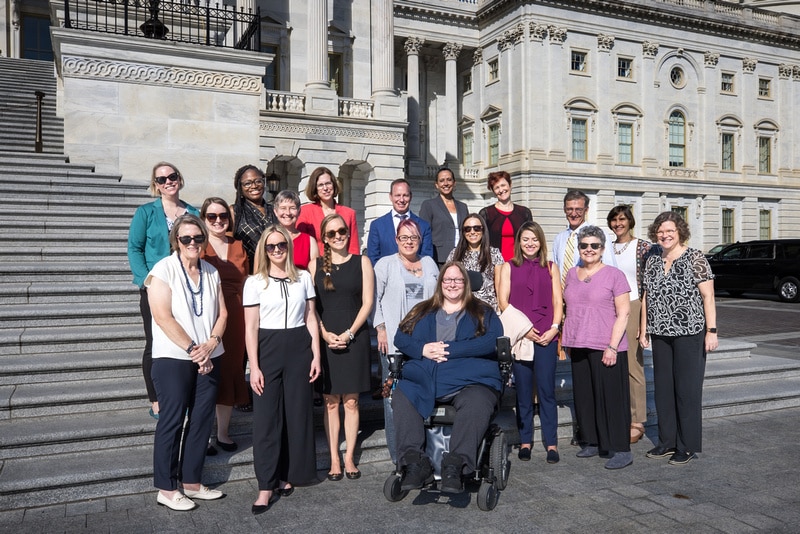- Alzheimer’s Disease and Related Dementias
- Antimicrobial Resistance
- Appropriations
- Cardiovascular Disease
- Care Innovation and Access
- Clinical Trials
- COVID-19
- Family Caregiving
- Health Equity
- Healthy Aging
- Home Health and Community-Based Services
- Medicaid
- Medicare
- Mental Health
- Nursing Home and Post-hospital Care
- Nutrition
- Persistent Pain
- Prescription Drug Affordability
- Quality and Outcomes
- Research Funding
- Sarcopenia and Mobility
- Telehealth
- Vaccination
- Value Assessment and Pricing
- Vision Loss
Research Funding
Biomedical research aims to advance and improve our understanding of disease in order to develop new therapeutics. The United States federal government has a vital role in supporting biomedical and scientific research. The National Institutes of Health (NIH)is the primary agency responsible for biomedical and public research in the United States. The NIH comprises 27 different institutes and centers, which each focus on a unique biomedical discipline. The research conducted at the NIH helps increase human lifespan, improve our quality of life, and discover new medicines and treatments for disease.
Most NIH funding is for early-stage basic research, which helps improve our understanding of scientific phenomena but does not have a direct commercial purpose. This research sets the foundation for the industry to conduct its research and development for the commercialization of new medicines. In 2021, the budget for the NIH was $43 billion, of which over three-fourths will be given to researchers throughout the country in the form of grants, contracts, and other awards. There is bipartisan support in Congress for the United States to maintain a robust biomedical research sector. Between 1998 and 2003, funding doubled from $13.6 billion to $27.3 billion. However, since then, the increases in funding the agency receives have been much more modest. The agency typically receives increases at or below the rate of medical inflation.
The Alliance for Aging Research advocates that the NIH receive regular appropriations increases to maximize the number of high-quality research projects funded. These increases are vital to improve the health of older adults and help us discover cures for diseases like cancer and Alzheimer’s disease. Much of the Alliance’s appropriations advocacy is focused on the National Institute on Aging (NIA), which funds research on to increase understanding of the aging process. The NIA is also the primary institute responsible for researching Alzheimer’s disease and related dementias.
Research Funding News & Updates
President Biden signs CAROL Act to Advance Heart Valve Disease Research
December 21, 2022
Alliance celebrates its 2022 Heroes in Health
September 30, 2022
The Healthy Aging Blog on Research Funding
Ways to Give
There are many ways you can help accelerate the pace of scientific discoveries and their application to vastly improve the universal human experience of aging and health:

The Alliance for Aging Research is a proud recipient of Candid’s Platinum Seal of Transparency.

The Alliance for Aging Research is proud to be rated a 4-star charity by Charity Navigator.




